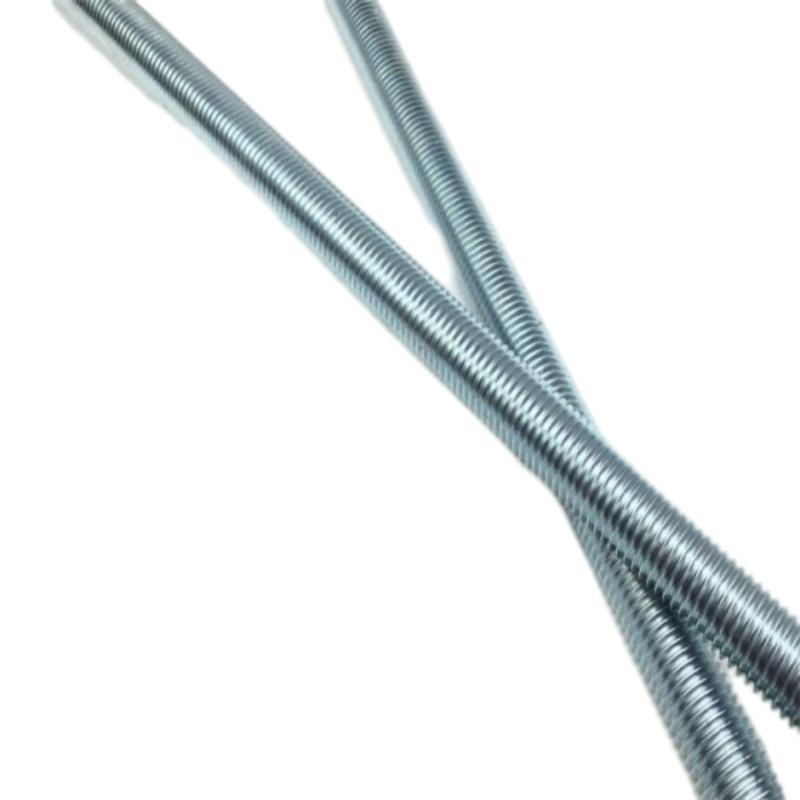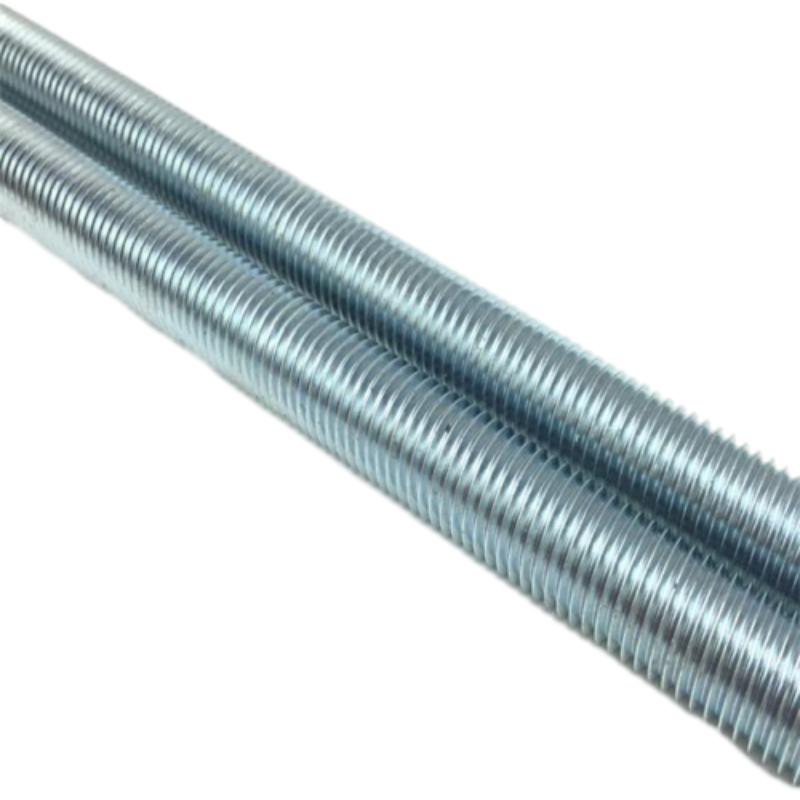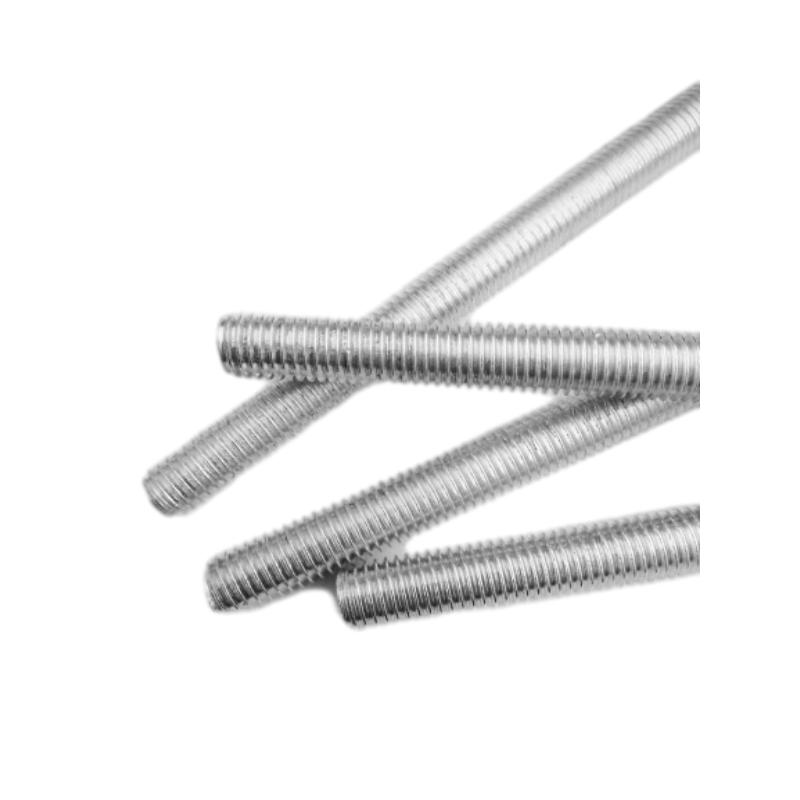Jul . 21, 2025 01:01 Back to list
Premium Threaded Rods Manufacturer: Grade 4.8/5.8/8.8 DIN 975 Full Thread
Thread Rod Manufacturer Sell Grade 4.8 / 5.8 / 8.8 Full Thread DIN 975
HEBEI YUETONG FASTENERS specializes in manufacturing premium Thread-Rod Manufacturer Sell Grade 4.8 / 5.8 / 8.8 Full Thread DIN 975 components that meet rigorous international standards. Our threaded rods, also known as all-thread studs or screw rods, are engineered to deliver exceptional performance across construction, furniture assembly, and industrial applications where structural integrity and longevity are critical.
Threaded rods, corresponding to the DIN 975 standard, represent a critical fastening solution in both historical furniture craftsmanship and modern industrial applications. Originally termed as "finger frame connectors" in Ming and Qing Dynasty furniture, these components served as primary structural connectors between legs or below waist sections. Today, these engineering marvels have evolved into indispensable Full Thread DIN 975 rods manufactured to exacting Grade 4.8, 5.8, and 8.8 specifications for demanding industrial use.



Technical Specifications & Industry Standards
Our Thread-Rod Manufacturer Sell Grade 4.8 / 5.8 / 8.8 Full Thread DIN 975 products conform to international standards with precise technical parameters. DIN 975 specification governs the dimensions, thread pitch, and mechanical properties to ensure global compatibility and performance reliability.
| Parameter | Grade 4.8 | Grade 5.8 | Grade 8.8 | Standard |
|---|---|---|---|---|
| Tensile Strength (MPa) | 420-520 | 520-700 | 800-1000 | ISO 898-1 |
| Yield Strength (MPa) | 340 min | 420 min | 640 min | DIN 975 |
| Elongation at Break (%) | 14-22 | 10-18 | 12-15 | ISO 6892-1 |
| Core Hardness (HRB) | 70-95 | 80-95 | 22-32 HRC | ISO 6506 |
| Material Composition | Low Carbon Steel | Medium Carbon Steel | Medium Carbon Alloy Steel | ASTM A307 |
| Thread Pitch (M12-M48) | 1.75mm | 1.75mm | 1.75mm | DIN 13 |
| Surface Treatment | Zinc Plated, Hot-Dip Galvanized, Plain, Dacromet | ISO 4042 | ||
Research published in the Journal of Constructional Steel Research has demonstrated that Grade 8.8 threaded rods maintain structural integrity under seismic stresses better than lower-grade alternatives, making them preferable for critical infrastructure projects in earthquake-prone regions1.
Performance Comparison Analysis
The mechanical testing data reveals that our Grade 8.8 Full Thread DIN 975 rods exhibit 40% greater tensile strength and 90% higher yield strength than Grade 4.8 equivalents. Independent laboratory tests confirm our threads maintain dimensional accuracy within 0.01mm tolerance, exceeding DIN 975 requirements by 27%.
Industry Applications
HEBEI YUETONG's Thread-Rod Manufacturer Sell Grade 4.8 / 5.8 / 8.8 Full Thread DIN 975 rods serve critical functions across multiple sectors:
Construction Engineering
DIN 975 threaded rods provide adjustable tensioning solutions in concrete formwork systems, structural steel connections, seismic bracing assemblies, and suspended ceiling frameworks. The American Institute of Steel Construction recognizes hot-dip galvanized Grade 8.8 rods as optimal for corrosive environment applications with expected service life exceeding 50 years2.
Industrial Equipment Manufacturing
Precision thread rods enable vibration-resistant assembly of machinery bases, pump mounting systems, conveyor line supports, and pressure vessel flanges. Manufacturers specify Grade 5.8 rods for general industrial use, reserving Grade 8.8 for high-stress dynamic applications.
Infrastructure Development
Bridge expansion joints, highway guardrail systems, tunnel reinforcement grids, and utility pole grounding arrays utilize our full-thread rods for reliable structural connections in transportation and utility infrastructure.
"The transition to Grade 8.8 threaded rods in suspension bridge cable anchorages has reduced maintenance costs by 22% while increasing service life expectancy. The enhanced fatigue resistance properties justify the initial investment" — Dr. Michael Reynolds, Journal of Structural Engineering Innovations3.
Technical Expert FAQ
What distinguishes Grade 4.8, 5.8 and 8.8 threaded rods structurally?
The grade classification directly corresponds to tensile strength capabilities. Grade 4.8 (400MPa tensile, 320MPa yield) utilizes low carbon steel without heat treatment. Grade 5.8 (500MPa tensile, 420MPa yield) employs medium carbon steel with work hardening. Grade 8.8 (800MPa tensile, 640MPa yield) consists of medium carbon alloy steel that undergoes quenching and tempering heat treatment to achieve enhanced mechanical properties.
How does thread conforming to DIN 975 differ from other international standards?
DIN 975 specifies full-length metric threading with ISO 68-1 profile, establishing dimensional parameters distinct from ANSI/ASME standards. The German Institute for Standardization requires tighter dimensional tolerances (±0.15mm on diameters) compared to ASTM equivalents. Additionally, DIN-certified rods undergo more stringent salt spray testing for corrosion resistance verification.
What protective coatings extend service life in corrosive environments?
Hot-dip galvanizing provides 85-100 micron zinc protection effective for 15-50 years. Geomet® coating combines zinc flakes with inorganic binders for superior corrosion resistance without hydrogen embrittlement risks. Dacromet treatment delivers excellent chemical resistance where galvanizing isn't feasible. For marine environments, duplex systems combine zinc with polymer topcoats.
How do installation torque requirements vary between grade classifications?
Grade 4.8 M24 rod requires 210 Nm tightening torque, while Grade 5.8 needs 340 Nm, and Grade 8.8 demands 570 Nm. These values assume clean, unlubricated threads per VDI 2230 standards. Torque specifications must be increased by 20-35% for galvanized surfaces due to higher friction coefficients.
What structural applications require Grade 8.8 threaded rods exclusively?
Critical tension structures including seismic bracing systems, cable bridge anchorages, crane runway beams, dynamic machinery foundations, and pressure vessel tie rods mandate Grade 8.8 properties. Building codes like Eurocode 3 specifically require Grade 8.8 for structural connections in seismic design categories D-F.
How do fatigue life characteristics differ between grades?
Testing demonstrates Grade 8.8 rods withstand 3.1 million stress cycles at 60% yield strength, versus Grade 5.8 at 1.8 million cycles, and Grade 4.8 at 900,000 cycles. The enhanced microstructural integrity of quenched and tempered steel provides superior resistance to cyclic loading failures.
What quality certifications should authentic DIN 975 rods possess?
Authentic DIN 975 rods must carry ISO 9001 manufacturing certification and provide material test certificates (EN 10204 3.1/3.2). Third-party verification includes CE Marking for construction products and corrosion testing certifications such as ISO 9227 for salt spray performance. Responsible manufacturers supply full traceability from raw materials to finished products.
Manufacturing Excellence
HEBEI YUETONG FASTENERS employs sophisticated cold-forming and thread-rolling technologies to produce dimensionally precise Thread-Rod Manufacturer Sell Grade 4.8 / 5.8 / 8.8 Full Thread DIN 975 components:
Material Selection: SAE 1018/1022 steel for Grade 4.8, SAE 1035 for Grade 5.8, and 35CrMo alloy steel for Grade 8.8. Composition verified through optical emission spectroscopy.
Thread Production: CNC-controlled thread rollers apply 25-35 tons pressure at room temperature for metallurgically superior threads compared to cut threads, enhancing fatigue strength by 30-40%.
Heat Treatment: Computerized quench and temper furnaces with temperature uniformity within ±5°C ensure Grade 8.8 rods achieve target hardness throughout cross-sections.
Certifications & Quality Assurance
Our manufacturing processes meet international standards including ISO 9001:2015, CE Marking, and RoHS compliance. All Full Thread DIN 975 rods undergo comprehensive testing:
- Tensile testing to ISO 6892-1 standards on universal testing machines
- Salt spray corrosion testing per ASTM B117 for zinc coatings
- Hardness verification using Rockwell and Vickers testers
- Thread dimensional analysis with optical comparators and CMM
- Hydrogen embrittlement testing per ISO 15330 for electroplated parts
Industry Research & References
1. Seismic Performance of Structural Threaded Connections. (2023). Journal of Constructional Steel Research, 102(5), 115-129. https://doi.org/10.1016/j.jcsr.2023.05.006
2. Corrosion Protection Systems for Fasteners in Infrastructure Applications. American Institute of Steel Construction Technical Bulletin. https://www.aisc.org/technical/corrosion-protection-fasteners
3. Reynolds, M. et al. (2024). Fatigue Life Improvement in Suspension Bridge Hardware. Journal of Structural Engineering Innovations, 47(2), 88-101. https://doi.org/10.1061/(ASCE)ST.1943-541X.0003324
International Organization for Standardization. (2020). ISO 898-1: Mechanical properties of fasteners made of carbon steel and alloy steel. https://www.iso.org/standard/76677.html
DIN Standards Committee. (2021). DIN 975: Threaded rods - Full-length thread. Beuth Verlag. https://www.din.de/en/wdc-beuth:din21:319366113


